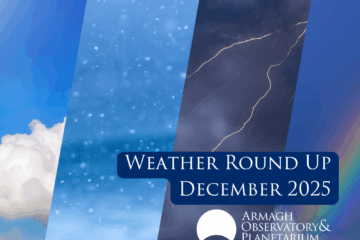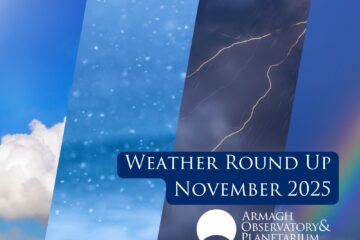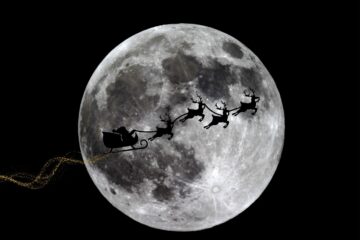Well, thankfully the drudgery of January is behind us and we can look forward to a month full of dark nights, stars and even a hint of romance. And let me tell you this my dear reader, if there’s one thing we’re experts on up in the Planetarium, it’s romance**.
January will end with a very vivid and stunning Supermoon on the 31st, our third in quick succession (as all two avid readers of my efforts on this blog will attest to). So the beginning of the month will be a bit bright for star gazing, but, there’s plenty happening in the sky early in the month for those of us who do not wish to wait until the glow of the Moon subsides in a few weeks’ time. For those of you with a telescope or a pair of binoculars, get out and get a good look at the Moon tonight, it really will be quite a sight.

A lunar eclipse occurs when the Moon passes directly behind the Earth into its umbra (shadow). Credit: NASA
Tonight’s moon will be a ‘Super Blood Moon’, we won’t have the reddish hue added by an eclipse in Western Europe that our American cousins will be treated to, but I liked this image, and it’s my blog so I’m using it.
For any of you who are close to the Planetarium in Armagh, the next week or so will throw up plenty of opportunities to get a glimpse at the International Space Station as it makes its way around the world on one of its many orbits around our home planet. This fantastic website: Heavens Above will help with co-ordinates for anyone interested in getting their telescopes out to look above 400km or so at the six astronauts currently on their mission around our planet.
Speaking of astronauts, we are delighted to bring back our very popular workshop on the ‘Life of an Astronaut’ this coming month for the NI Science Fest. This workshop is primarily aimed at schools during February but due to popular demand we will be adding this interactive workshop to our Saturday schedule on the 17th February. In this workshop, you’ll get the chance to learn about what it takes to become an astronaut and find out about day to day life in the International Space Station and even learn about a possible expedition to Mars. If you have any interest in attending this workshop, give us a call or send us an e-mail for more information.
Now, earlier I promised you romance, and a tenuous link to romance and Valentines Day is what you’re going to get – so on to the night sky and the romantic struggles of Gods. Taurus is particularly visible in the month of February, and the new moon on Valentines night (14th February) will give all those who would sooner spend the night looking up into the sky than staring into their significant others eyes something of an astronomical treat. Taurus will be in the South West of our night sky and should be fairly easy to see on a clear night without the need for any additional equipment.

Taurus is known for having the fiery red eye of the bull, otherwise known as the star Aldebaran. It is 65 light years away and is a giant orange star. Credit: Heather Alexander/Stellarium
There’s no way to discuss the story of Taurus without coming to the realisation that Zeus, the King of the Gods was frankly, a bit of a creep. According to the mythology, Zeus disguised himself as a striking white bull in order to attract the attentions of the very beautiful Europa, Zeus then used this deception to carry Europa away whilst still in his animal form before revealing himself. So, if you’re on your own this Valentines, remember that even the boss man of the Gods had to impersonate an animal to get close to an object of his affections, so it could always be worse. Ever the egotist, Zeus then added an image of his disguised form to the night sky so that it could be admired forevermore.
Well, that’s about enough waffle for one blog. I wish you all the best with any star gazing you are undertaking and do remember to join us for one of our Star Tracker nights on the 20th of February and March for a digital theatre show, a talk with an astronomer and (weather permitting) a look up at the night sky with one of our very fancy telescopes. I’ll be back with my final blog before returning to the world of regular employment next month so I hope you’ll join me. Thanks for reading and I’ll hopefully see some of you soon.
Article written by: Stephen McAvinchey, Education Support Officer
**this is categorically not true.




1 Comment
The February Night Sky 2018 – MeasurementDataBases for Industry & Science · January 31, 2018 at 17:58
[…] Astronotes Astronotes: Well, thankfully the drudgery of January is behind us and we can look forward to a […]